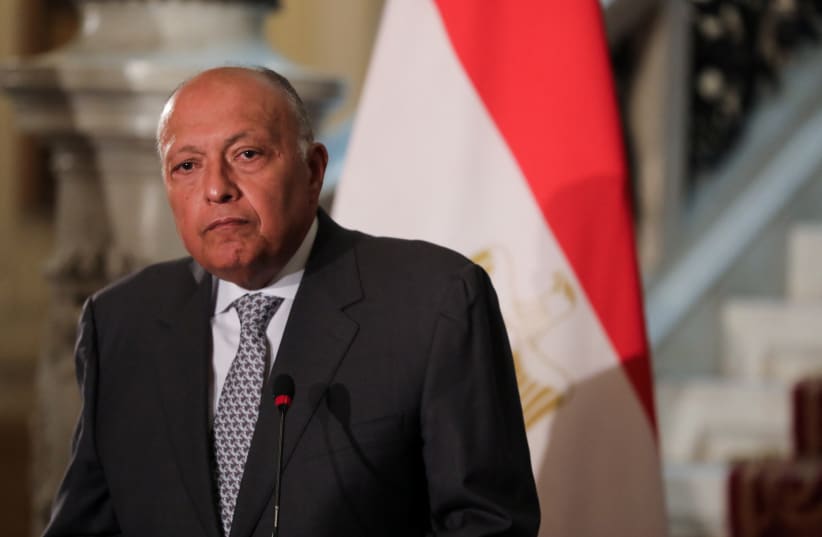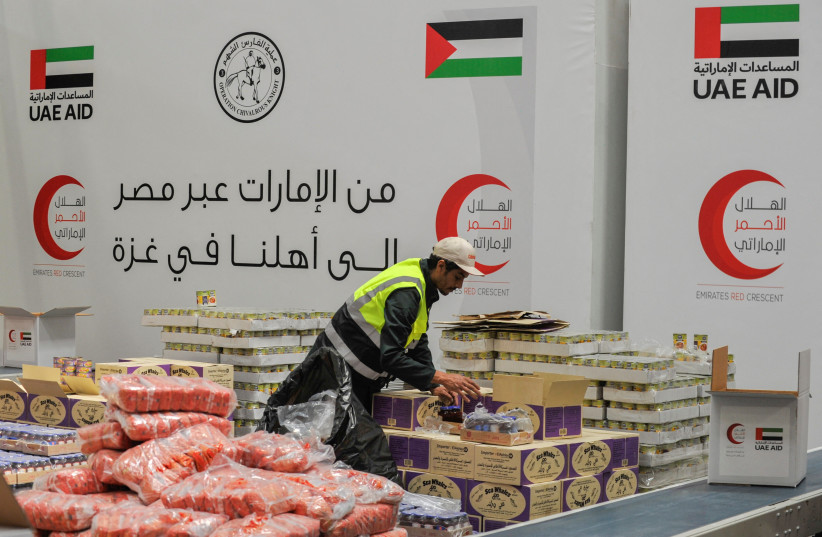Tensions between Jerusalem and Cairo rose Tuesday over who was responsible for the continued closure of the Rafah crossing between Egypt and Gaza, which the IDF seized from Hamas last week on the Palestinian side.
Foreign Minister Israel Katz had spoken with his German and British counterparts, urging them to pressure Egypt to allow trucks with humanitarian aid to pass into Gaza.
“I spoke with UK Foreign Secretary [David Cameron] and German Foreign Minister [Annalena Baerbock] about the need to persuade Egypt to reopen the Rafah crossing to allow the continued delivery of international humanitarian aid to Gaza,” Katz wrote on X.
“The world places the responsibility for the humanitarian situation on Israel, but the key to preventing a humanitarian crisis in Gaza is now in the hands of our Egyptian friends,” he said.
“Hamas will not control the Rafah crossing – this is a security necessity on which we will not compromise,” he stressed.
Egyptian accusations against Israel
Egyptian Foreign Minister Sameh Shoukry pushed back at Israel. His office, in a sharply worded statement, stressed that it “strongly denounced the desperate attempts of the Israeli side to hold Egypt responsible for the unprecedented humanitarian crisis witnessed in the Gaza Strip, which is a direct result of indiscriminate Israeli atrocities committed against the Palestinians for more than seven months.”
His office accused Israel of distorting facts and avoiding responsibility.
UN Secretary-General Antonio Guterres called for the crossing to be opened immediately. Once a minor passageway into the enclave, it has become one of the major arteries for humanitarian assistance since the start of the war on October 7.
Aid also enters Gaza from Kerem Shalom, which before the war had been the main passageway for goods between Israel and Gaza, along with, in the north, Erez crossing and Gate 96.
Rafah, however, has been vital because some one million Palestinians are sheltering in the area.Egypt, along with Qatar, have been the two mediating countries working on a deal for the release of the remaining 132 hostages captured on October 7.
But the Gaza war has strained relations with Cairo, which has warned against any Rafah operation since it shares the border. It has also been concerned that Israel would forcibly displace Palestinians from Gaza into Egypt, or that Palestinians would flee into the adjacent Sinai.
Israel believed that it had Egypt’s cooperation about the crossing, the seizure of which it believed would help ensure that Hamas would not be able to smuggle weapons and other items into the enclave.
Diplomats have been, worried since the start of the war, that Israel’s battle against Hamas, could harm the historic 1979 peace agreement with Egypt.
Since Israel seized control of the crossing on May 7 as it stepped up its military campaign around Rafah, aid has accumulated on the Egyptian side of the border.
Deputy State Department spokesperson Vedant Patel said that US officials had spoken with both Israeli and Egyptian officials, noting that so far only 50 trucks had entered Gaza this week, which was “not nearly enough.”

